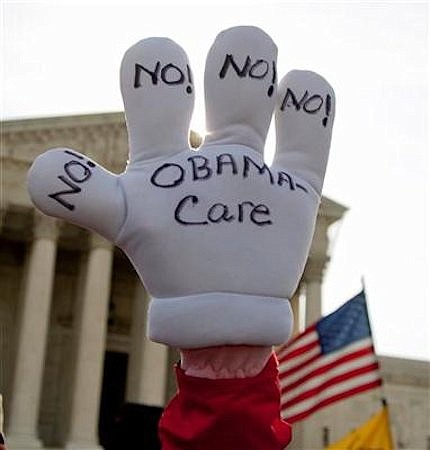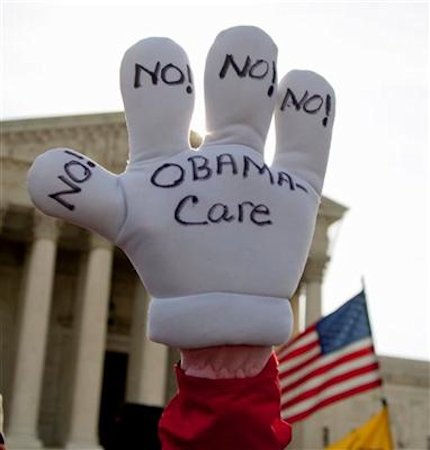So just how loudly will Republicans cheer later this month if the conservative U.S. Supreme Court rules against the government in the King v. Burwell case and dismantles the underpinning of the Affordable Care Act?
More than one pundit in recent days has likened the impending reaction to such a ruling to something like this: Republicans will be like the car-chasing dog that caught the car.
In short - run over. Why? Because for all the conservative whining and chest-thumping over what they've even called "lawless" Obamacare, Republicans still - after five years of rants against a health care policy that has contributed to 14.7 million adults gaining health insurance coverage - don't have a better alternative. What's more they don't have a plan for handling the chaos when some 8 million of those 14.7 million suddenly lose coverage, sick or not.
Health care at stake in the region
* In Tennessee, 155,753 people may lose affordable coverage* In Georgia, 412,385 people may lose affordable coverage* In Alabama, 132,253 people may lose affordable coverageSource: Kaiser Family Foundation
Instead of governing, most Republican elected officials at both the congressional and state levels have thrown every obstacle they could think of in front of anything that remotely smelled of "Obamacare."
Meanwhile, however, since the ACA became law in March 2010, the country's number of uninsured people has dropped to the lowest level ever recorded. Health care prices and employer premiums have risen at lower rates than in years past and Americans can no longer be denied coverage because of pre-existing conditions. There are no more annual or lifetime limits on how much insurers have to pay for care. And, contrary to a Republican claim that Obamacare is a "job killer," the country has logged 63 straight months of private-sector job growth, starting the month the act was passed.
In fact, the president summed it up succinctly Tuesday in a forum of the Catholic Health Association: There is something "deeply cynical about the ceaseless, endless, partisan attempts" to "roll back the progress" already made by implementation of the Affordable Care Act. Nonetheless, the success of the ACA is clear, despite its incomplete implementation because 34 states, including Tennessee, Georgia and Alabama, in essence opted out of setting up state exchanges and instead relied on the federally run marketplace.
That opting out, indirectly, is at the crux of what the Supreme Court now is looking at.
The ACA provides subsidies in every state for low-income working people who earn too much to qualify for Medicaid, the health care program for the poor. But the lawsuit filed by conservative opponents claims that careless wording in one section of the law should be interpreted to mean tax credit subsidies should be available only in states that have established their own health insurance exchanges, but not in states that chose to use HealthCare.gov.
Those who passed the law in 2010 say there was never any doubt the subsidies would be available in all the states.
Yet now, a high court ruling against the federal government could make these tax credit subsidies unavailable in the opted-out 34 states. The result would be to undermine the entire economic structure for the ACA.
As the New York Times has noted, there is an easy solution. Congress could pass a one-sentence law clarifying that subsidies will be available on all the exchanges. That's what polls show Americans want. Polls also show that the public's understanding and support of the ACA is increasingly rising.
"But congressional Republicans are not about to do anything realistic to help millions of people keep their health coverage, and are bent on destroying the law that made coverage possible," states a recent New York Times editorial.
As Chattanooga Times Free Press reporter Kate Belz noted in a front page story Wednesday, most consumers don't realize that a pending court decision can end their insurance coverage.
When and if that happens, woe be unto the Republicans who tore it asunder - especially if they try to leave it that way.

